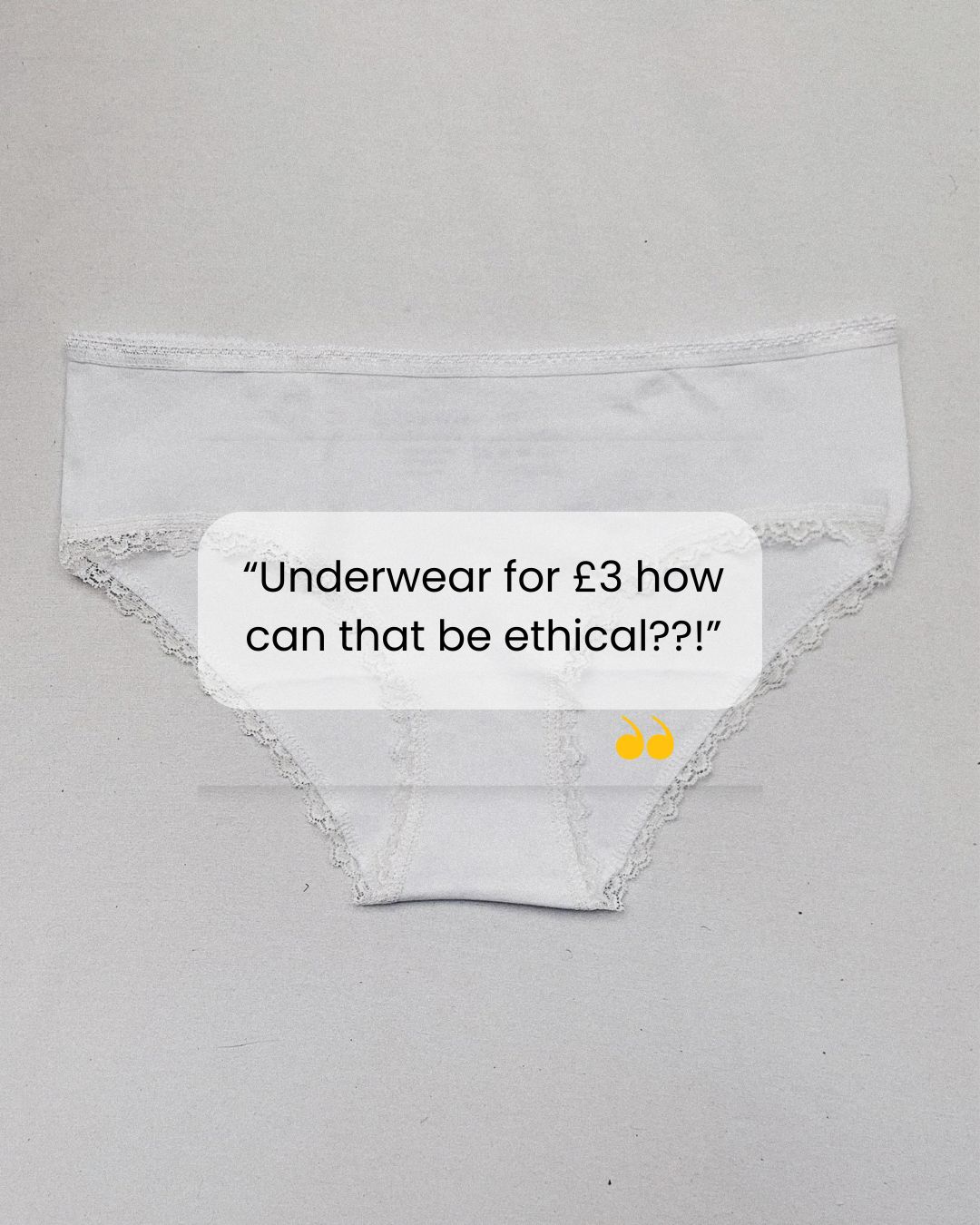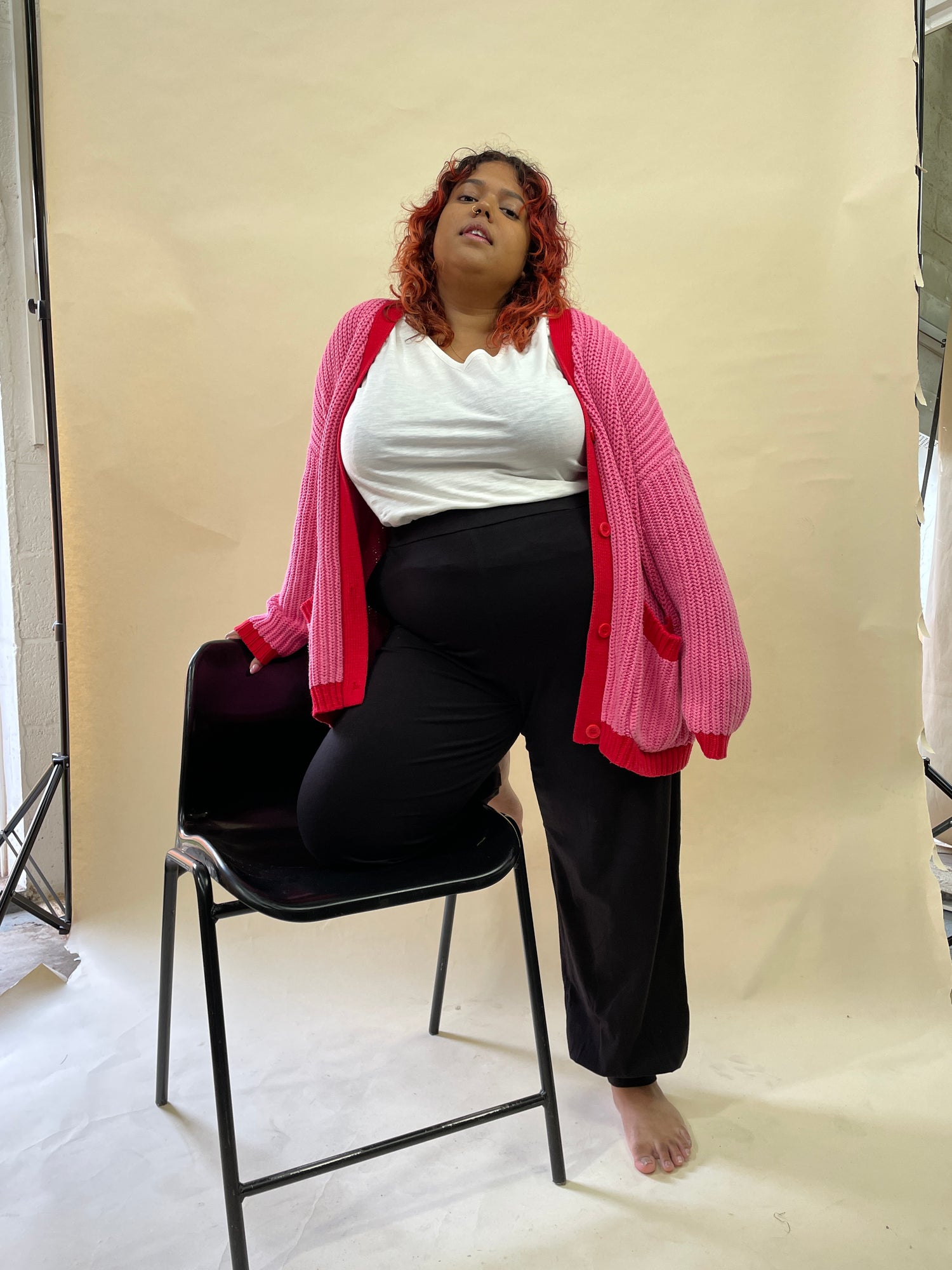Sancho’s is the home of sustainable fashion and ethical lifestyle products. Our Black woman owned business is based in Exeter, UK where we believe in doing better, providing sustainable and affordable clothing options. Through activism and spreading awareness, we are working towards a kinder world. Shop our Transparent Pricing collection here, our Organic Cotton Bestsellers here and read more About Us here.
Here is a blog written by Annabel Mitchell, who is a second year law student at the University of Exeter and is Head of Engagement for Foundation for Uyghur Freedom. She has kindly guest written this blog for our platform to share with you all the realities of what is happening in Xinjiang to the Uyghur peoples. Please read, share and take action where you can.
What’s happening in Xinjiang?
The Xinjiang autonomous region has been under Chinese control since 1949. It’s home to around 10 million Uyghurs. The Uyghurs are an ancient Turkic ethnic group who largely adhere to the Muslim faith.
Since 2016 China has been criticised for allegations of the mass detention of the Uyghur community. It is estimated that so far China has detained up to 1.8 million Uyghurs in ‘re-education centres’.Initially, the Chinese government denied the camps existed, but since 2018 have defended them, claiming that the camps are actually training centres to combat extremism and to teach detainees useful skills. However, leaked documents and first-hand accounts tell another story.
A key component of the government’s strategy to dominate Uyghurs is a vast system of forced labour. It happens both inside the internment camps and beyond them, affecting factories and farms across the region and the rest of China.
The government is transporting Uyghur workers to other parts of China, where they are working under conditions that strongly indicate forced labour at factories exporting garments and other products. Simultaneously, a number of key Chinese suppliers selling to well-known global brands are deeply implicated in the government’s abuses, having accepted subsidies to set up or expand factories in Xinjiang, or receiving workers under the government’s coercive training programmes.
Associated Press, Australian Broadcasting Corporation, Australian Strategic Policy Institute, Axios, Congressional-Executive Commission on China, Global Legal Action Network, and the Wall Street Journal have linked at least 83 brands to cases of Uyghur forced labour, but the involved industries have failed to take effective action. In February 2020 The Washington Post visited a factory reported to be supplying 8 million pairs of Nike shoes annually, where it said that around 700 Uyghur peoples were being forced to work. The factory was said to have been a Nike supplier for more than 30 years.
While there has been global outrage at China’s abuses towards Uyghurs many leading global apparel brands are not just complicit, but actively benefiting from the Chinese government’s actions. Brands source millions of tons of cotton and yarn from the Uyghur Region, more than 80% of which is grown in Xinjiang. China, the largest cotton producer in the world, has 84% of its cotton coming from the Xinjiang region. One in five cotton products sold globally is tainted with forced labour and human rights violations in Xinjiang. That’s how embedded this genocide is in the global fashion chain. We’re talking brands like Gap, Adidas, Tommy Hilfiger, Calvin Klein, H&M, Nike, Uniqlo, Zara, and more.
Most major corporations claim not to tolerate forced labour by their suppliers but have offered no credible explanation as to how they can meet this standard while continuing to do business in a region where forced labour is rife. Furthermore, many apparel brands actively maintain lucrative partnerships with Chinese corporations implicated in forced labour. This includes corporations that benefit from the forced labour transfer of victims from the Uyghur Region to work in factories across China.
What Can Be Done?
“Global consumers can also hold companies accountable and should demand an end to all business partnerships in Xinjiang or look to boycotting their products.” – Michael Caster, author of The People’s Republic of the Disappeared, and co-founder of the human rights organisation Safeguard Defenders.
“As a starting point, we in Britain must approach cotton coming from China by default as having a presumption that it is tainted by enslaved labour and genocide unless it can be proven otherwise” – Maajid Nawaz, Quilliam International
“Xinjiang and Western China look so far from our lives,” he says. “Our job is to show that what you are wearing is connected to the worst crime against humanity of today.”- Raphaël Glucksmann, vice-chair of the European Parliament's Human Rights Subcommittee, is leading a social media campaign to raise awareness on the connection between Uighur forced labour and fashion production
About the writers;
Annabel Mitchell is a second-year law student at the University of Exeter and is Head of Engagement for Foundation for Uyghur Freedom.
Georgia L. Gilholy is a graduate student and Associate Writer for Foundation for Uyghur Freedom. She also interns for the E2 Review Podcast and is Assistant Editor for The Mallard.
Follow them and support the cause:
@foundation4uyghurfreedom on Instagram, @Uyghur_Freedom on Twitter.
Bibliography & further reading
https://www.personneltoday.com/hr/fashion-brands-deny-uyghur-forced-labour-connections/
https://www.bbc.co.uk/news/world-asia-china-54826270
https://greenisthenewblack.com/uyghurs-and-fast-fashion-forced-labour-and-genocide-in-china/
https://www.vox.com/the-goods/2020/8/17/21372466/uighur-forced-labor-supply-chain-masks-shirt
https://hbr.org/2019/08/what-supply-chain-transparency-really-means
https://remake.world/stories/news/free-uyghur-now-stop-zara-from-profiting-off-of-forced-labor/
https://enduyghurforcedlabour.org/call-to-action/
https://www.beljacobs.com/news/2020/9/17/forced-labour-fashion-week-campaign
https://www.instyle.com/fashion/models-protested-forced-labor-fashion-nyfw
https://jamestown.org/program/evidence-for-chinas-political-re-education-campaign-in-xinjiang/
https://www.fashionrevolution.org/usa-blog/how-much-garment-workers-really-make/



